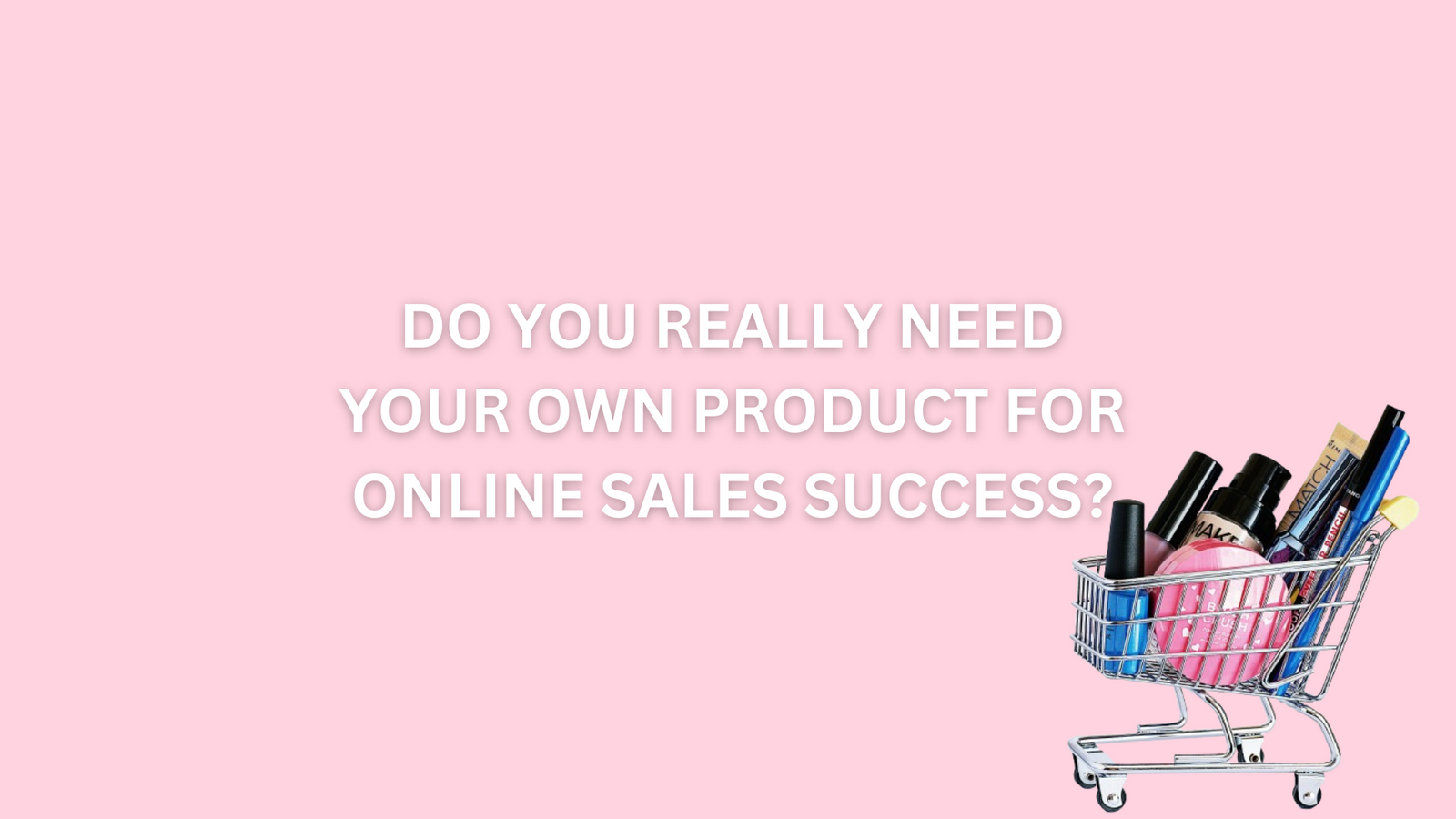Why Owning Your Own Product is a Game-Changer for Ecommerce Businesses

When embarking on an ecommerce venture, it's tempting to seek a competitive edge. However, launching a business with a significant investment in a proprietary product can be risky, especially without an established customer base. A more prudent approach is to start with what you have, building a loyal following and analyzing sales data to identify potential product gaps.
With a solid foundation in place, incorporating product development into your long-term strategy can yield substantial benefits. By developing your own products, you can gain greater control over your brand, increase profit margins, and expand your market reach. Let's explore the advantages of owning your own product and how it can elevate your ecommerce business.
Like this post? Want to be the first to get more like it? Subscribe to our newsletter for free.
In need of a digital agency to take your business to new heights? We can help.
1. Brand Building and Control
- Unique Selling Proposition (USP): Your own product allows you to craft a unique selling proposition that sets you apart from competitors. By developing a product that addresses specific customer needs, you can position your brand as a solution provider.
- Customer Loyalty: Owning a product enables you to build a loyal customer base. When customers have a positive experience with your product, they're more likely to become repeat buyers and brand advocates.
- Brand Storytelling: Your product becomes a powerful tool for storytelling. You can share the story behind its creation, highlight its unique features, and connect with customers on an emotional level.
2. Profitability and Scalability
- Higher Profit Margins: With your own product, you have control over pricing and distribution, leading to potentially higher profit margins compared to selling third-party products.
- Economies of Scale: As your product's popularity grows, you can negotiate better deals with manufacturers, reducing production costs and increasing your overall profit.
- Diversification and Risk Mitigation: Having your own product opens up additional revenue streams, such as wholesale distribution and licensing.
3. Market Expansion and Partnerships
- Wholesale Opportunities: Selling your product wholesale to other retailers can significantly expand your market reach. Partnering with established businesses can expose your brand to a wider audience.
- Leveraging Partner Marketing: When your product is sold by other retailers, you benefit from their marketing efforts, including advertising, promotions, and in-store displays.
4. Data-Driven Insights and Product Development
- Customer Insights: By analysing customer behavior and feedback on your own product, you can gain valuable insights to inform future product development and marketing strategies.
- Iterative Improvement: Owning your product allows you to continually refine and improve it based on customer feedback and market trends.
We asked our customers what questions they had about developing their own products and here's what they told us:
"Do I have to have my own product to ensure ecommerce success?"
No, but it can significantly enhance your business. Many successful ecommerce businesses thrive by curating a selection of products from other suppliers. However, having your own product can provide a competitive edge and boost your brand's visibility.
"Can I have a mix of products from other suppliers and my own products that I have developed?"
Yes, this hybrid approach is common. It allows you to leverage the strengths of both owned and third-party products. By carefully selecting and curating your product range, you can create a compelling shopping experience for your customers.
"What if I can't think of a great product or don't have the funds to develop one?"
Don't let that deter you. Start by analysing your existing customer base and sales data to identify potential product gaps. Consider conducting surveys or polls to gather feedback from your customers. You can also explore dropshipping or private labeling as cost-effective ways to introduce your own branded products.
Remember, the key to success in ecommerce is to understand your target audience, offer high-quality products, and provide excellent customer service. Whether you choose to focus on your own product or a curated selection of third-party products, a well-executed strategy will help you achieve your business goals.
Don't lose sight of the real goal: having a successful business
While owning your own product can offer significant advantages, it's essential to strike a balance. Remember, the path of least resistance is often the best way to start. Don't let the pursuit of a proprietary product hinder your progress. Instead, focus on building a strong foundation, understanding your customer base, and iterating on your product offerings over time.
Having your own range of products is just one way to potentially be successful. There are many businesses out there that are very good at reselling other people's brands. You can position your business for long-term success, regardless of whether you have your own product.
Ultimately, the key to ecommerce success lies in adaptability, customer focus, and a willingness to take calculated risks.
Like this post? Want to be the first to get more like it? Subscribe to our newsletter for free.
In need of a digital agency to take your business to new heights? We can help.




Leave a comment